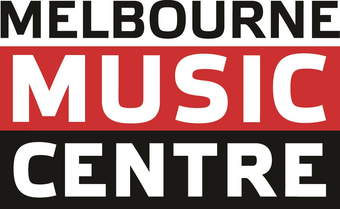Music is not just a source of entertainment; it has the power to heal, comfort, and transform lives. In the realm of mental health, music therapy emerges as a powerful tool, offering solace to those facing various challenges. In this post, we'll delve into the world of music therapy, its techniques, and its applications in alleviating a wide range of mental health issues.
What is Music Therapy?
Music therapy is a specialized field that uses music and musical activities to address physical, emotional, cognitive, and social needs. Trained music therapists work with individuals of all ages and backgrounds to create a therapeutic environment where music becomes a means of communication and healing.
The Healing Power of Music
Music therapy harnesses the innate power of music to achieve therapeutic goals. Here's how it can improve mental health:
1. Emotional Expression: Music provides a safe and non-verbal outlet for the expression of complex emotions. Through songwriting, playing instruments, or singing, individuals can convey feelings that may be difficult to articulate verbally.
2. Stress Reduction: Listening to calming music or participating in musical activities can lower stress levels and promote relaxation. Music therapy is particularly effective in reducing anxiety and managing stress-related disorders.
3. Cognitive Enhancement: Engaging with music can stimulate cognitive functions, such as memory, problem-solving, and creativity. It is especially beneficial for individuals with cognitive impairments or neurodevelopmental disorders.
4. Social Connection: Group music therapy sessions foster a sense of community and belonging. Participants share musical experiences, collaborate, and develop social skills.
5. Pain Management: Music therapy has been shown to reduce the perception of pain in medical settings. It distracts from discomfort, lowers stress associated with pain, and promotes a sense of well-being.
Applications of Music Therapy
Music therapy is a versatile discipline with applications across a wide range of mental health issues:
1. Depression and Anxiety: Music therapy can help individuals cope with depressive symptoms and manage anxiety by providing a creative outlet for emotions.
2. Autism Spectrum Disorders: Music therapy supports social and communication development in individuals with autism. It can improve social interaction and emotional expression.
3. Post-Traumatic Stress Disorder (PTSD): For individuals with PTSD, music therapy can be a safe way to process traumatic experiences, reduce symptoms, and improve overall well-being.
4. Dementia and Alzheimer's Disease: Music therapy is a valuable tool in memory care. It can trigger memories, reduce agitation, and enhance cognitive function in individuals with dementia.
5. Substance Abuse and Addiction: Music therapy can complement addiction treatment by addressing emotional issues, promoting relaxation, and providing a healthy coping mechanism.
6. Mental Health in Children: Music therapy is particularly beneficial for children with behavioral and emotional challenges. It offers a playful and non-threatening way to address their needs.
The Role of a Music Therapist
A qualified music therapist is trained to assess an individual's needs and design a customized therapy plan. They use various techniques, such as improvisation, songwriting, listening, and playing instruments, to achieve therapeutic goals.
A Symphony of Healing
Music therapy is a testament to the incredible healing power of music. It provides individuals with a unique avenue for emotional expression, stress reduction, and cognitive enhancement. As a complementary approach to traditional therapy, music therapy offers hope and healing to those facing mental health challenges.
So, let the melodies play, the rhythms flow, and the harmonies soothe, for in the world of music therapy, we discover the transformative potential of healing harmonies.

